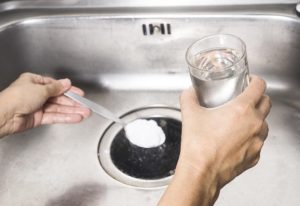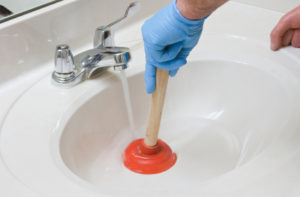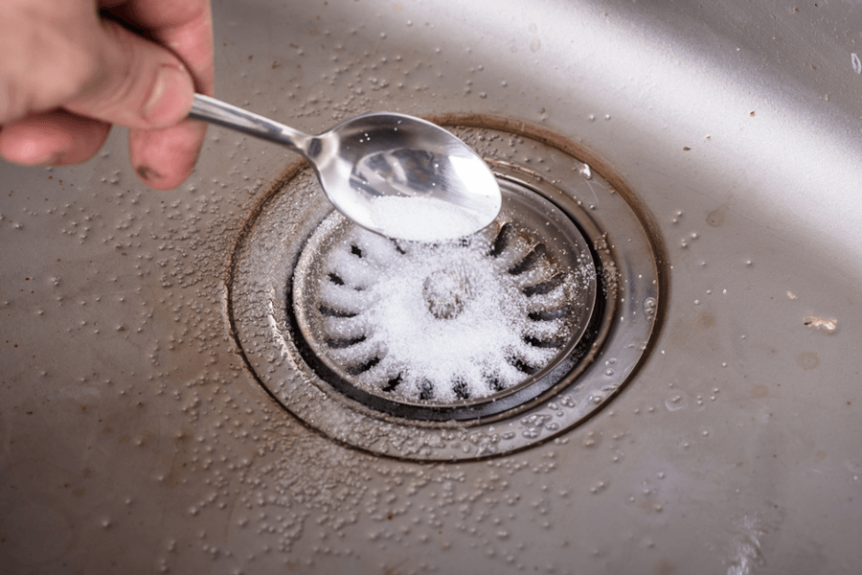Clogged drains can seem so severe and cause such frustration that it’s easy to gravitate towards the most extreme, corrosive chemicals in order to fix the problem. Indeed, many of the most popular drain cleaners consist of lye and other caustic substances which are dangerous to handle even with gloves on and can wreak havoc on piping and ground water systems. Furthermore, inhaling the fumes from any of these products can rapidly damage the mouth, lungs and nostrils. Fortunately, there are alternative methods that are oftentimes just as tough on clogged drains but much gentler on humans and the environment.

For simpler clogs, baking soda and vinegar work quite well. As you may recall from high-school chemistry class, mixing these two substances together creates a
bubbling, frothy reaction which can oftentimes be sufficient to dislodge whatever material might be stuck in the drain. Try using one cup of baking soda followed by a cup of vinegar and then pouring three cups of water down the drain to facilitate this reaction. Aside from its usefulness in clearing out the pipes, baking soda has some disinfectant properties as well, which can be helpful in eliminating odors caused by fungi or bacteria in the drain.
Washing soda is another useful drain-cleaning product (which can be emulated quite well by mixing boiled water and baking soda together). The substance is very alkaline (with a pH of 11) but is not nearly as dangerous as other alkaline (lye-based) cleaners. To combat a clogged drain with washing soda, try using ¼ cup followed by water.
Microbial cleaners, an alternative to chemical cleaners, have become much more popular recently. These cleaners work by using living bacteria to literally consume the matter stuck within your drains. Furthermore, even after the debris has been cleared away, these bacteria will continue to inhabit the drain and devour any food waste that comes its way. Drainbo, the most popular brand of microbial cleaner, uses roughly 90 million microbes in each gallon of liquid. However, if you choose to use this type of cleaner, make sure not to wash any boiling water down the drain, as this will eradicate the helpful bacteria.
Enzyme cleaners function in a similar way to microbial cleaners, by using enzymes to break down organic matter. These products can be found at most health food stores and are fairly straightforward. Nonetheless, as with any other cleaning product, make sure to check the instructions before use.
Oftentimes, a bit of elbow grease can work wonders on a clogged drain, either on its own or in tandem with the natural cleaners described above. Plunging the drain is a helpful first step to take and can often resolve the issue entirely. Most treatments don’t work well when the drain is backed up with water, so plunging the drain first enables you to move onto the next step more effectively. If the clog doesn’t respond at all to your plunging efforts, it may be time to try a plumbing snake. However, these tools can be quite complex (and possibly dangerous) so you may want to consider contacting a professional if the problem reaches this level of severity.

By following one or more of the techniques outlined here, you should not only be able to clear out a clogged drain, but to do so without endangering yourself and the environment.

